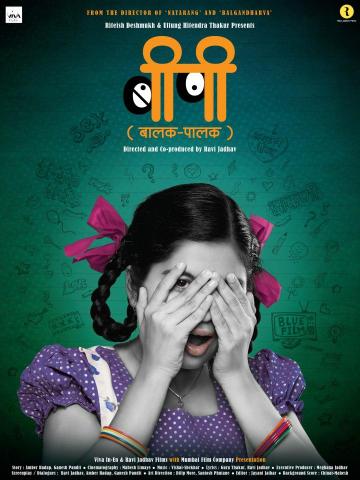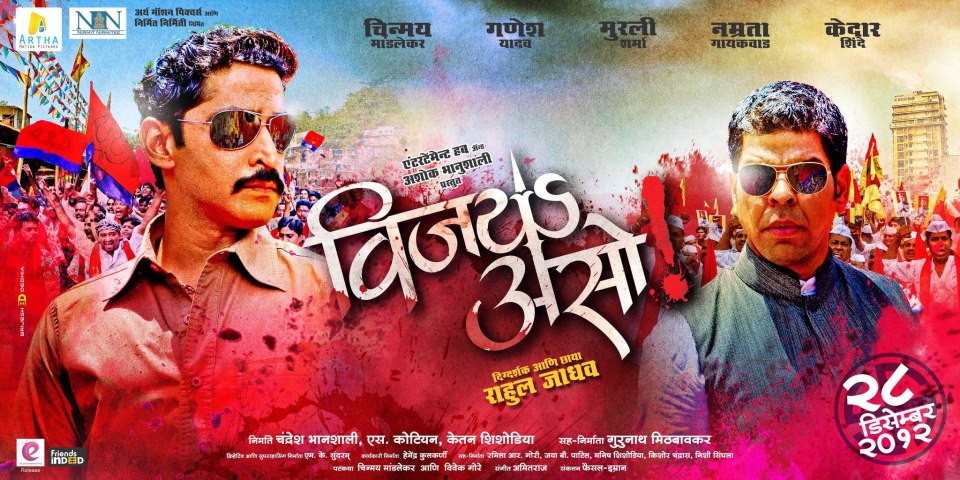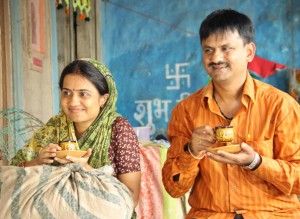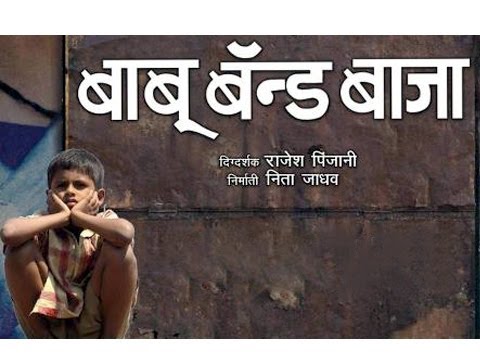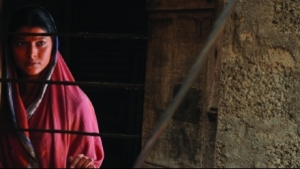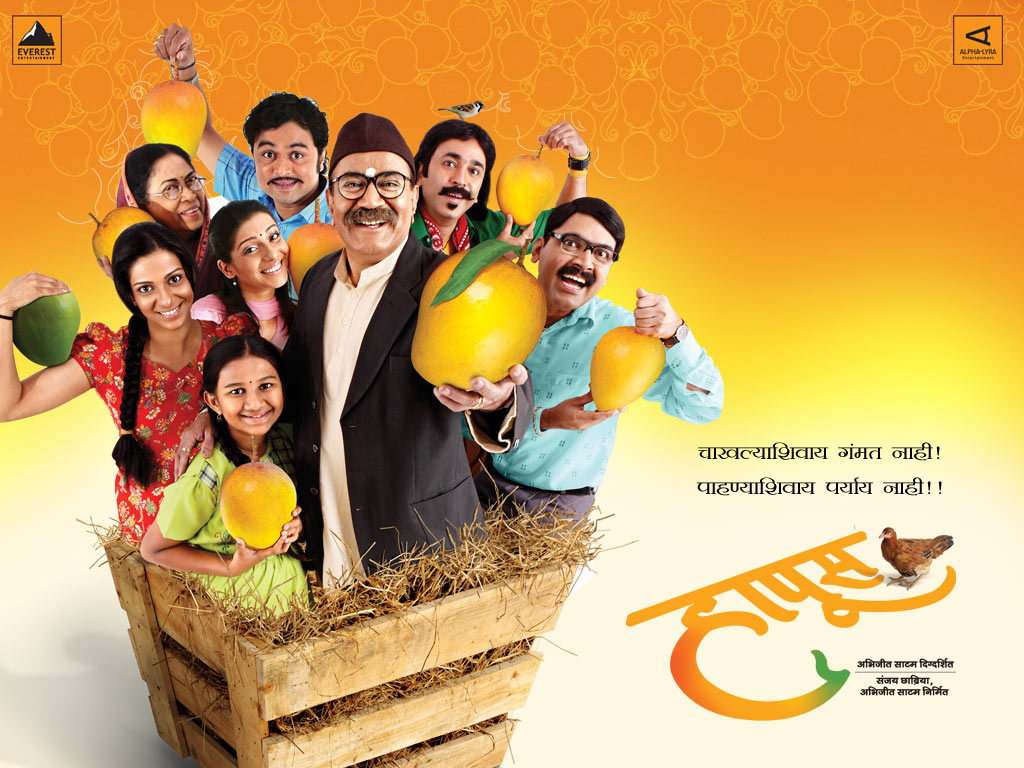Direction: Ravi Jadhav
Producers: Ravi Jadhav Films, Viva In-En and Mumbai Film Company
Writers: Ravi Jadhav, Ambar Hadap, Ganesh Pandit and Guru Jadhav
Cast: Rohit Phalke, Bhagyashree Sankpal, Shahwati Pimplikar, Madan Deodhar, Kishore Kadam, Prathamesh Parab, Sai Tamhankar, Anand Ingle
Music: Vishal-Shekhar
Genre: Drama
Rating: * * * *
Story Outline: The story takes place in the 1980s when Avya (Rohit Phalke), Bhagya (Madan Deodhar), Dolly (Shahwati Pimplikar) and Chiu (Bhagyashree Sankpal) are close teenage friends living in the same chawl. Circumstances and their school friend Vishu (Prathamesh Parab) introduce them to the world of sex through porn books and blue films (BP). But is this the right method of getting enlightened about sex? What would happen if the elders of their chawl find out about their secret activity?
(For more reviews, news and information on Marathi cinema, click HERE) (To join us on Facebook, click HERE)
Review: In most Indian families, it is almost impossible for children to talk about sex openly with their parents since the topic is considered a taboo. Due to this, naturally, they receive half or false knowledge about it from their friends. Ravi Jadhav’s BP (BALAK PALAK) gives a bold message that instead of children or teenagers getting a wrong notion about sex from unreliable or harmful sources, it is better that the parents themselves enlighten them about the curious phenomenon. Jadhav comes out as a winner by putting forth the point without being vulgar or cheap. But what makes the film further special is the fact that he has narrated the tale like a laugh riot throughout!
While dealing with such a sensitive subject, it is extremely vital for the writers to achieve utmost perfection. This is exactly what Jadhav, Ambar Hadap and Ganesh Pandit have done. They have encountered the very difficult task of narrating a curious tale about sex without making it look offensive whatsoever. Even the jokes or one-liners about sex are innocent than anything else. Since they are aplenty, there is nonstop entertainment!
The narration is smooth flowing yet very fast with a smart use of flashback. The introduction of the topic of sex through the proverb Shen Khane (eating cow dung) is an intelligent idea. Talking about intelligence, it is also seen in abundance in the dialogues, both funny and serious ones. Jadhav has also highly succeeded in getting top notch performances from his young cast. This greatly helps in generating great chemistry between the four friends.
Coming to the negative points, there is a moment in the pre-climax portion where the story appears stretched, especially due to the inclusion of a song. But this doesn’t cause any problems as such due to a greatly moving climax. Apart from this, the nature of the subject doesn’t ensure much of a repeat value.
Perfection is also seen in Mahesh Limaye’s cinematography and Dilip More and Santosh Phutane’s art direction. The editing is perfect while the background music (Chinar-Mahesh) is effective. From Vishal-Shekhar’s music, ‘Karuya Danga’ is a well composed, peppy number that stays with you.
The film is blessed with excellent performances. Rohit Phalke, Madan Deodhar, Shahwati Pimplikar, Bhagyashree Sankpal and Prathamesh Parab are flawless and mature in their respective acts. It’s a pleasure to see them perform! Kishore Kadam is wonderful in a difficult role. Sai Tamhankar provides perfect support while Anand Ingle, Avinash Narkar, Vishaka Subedar and Supriya Pathare play their parts well. Subodh Bhave and Amruta Subhash shine in their cameos.
Overall, BP (Balak Palak) succeeds in dealing with a sensitive issue in a non-offensive and entertaining manner. The film is sure to earn accolades at the box office due to a positive response. It has a good two week period to earn before Pune 52 and Hou De Jarasa Ushir release on January 18.
